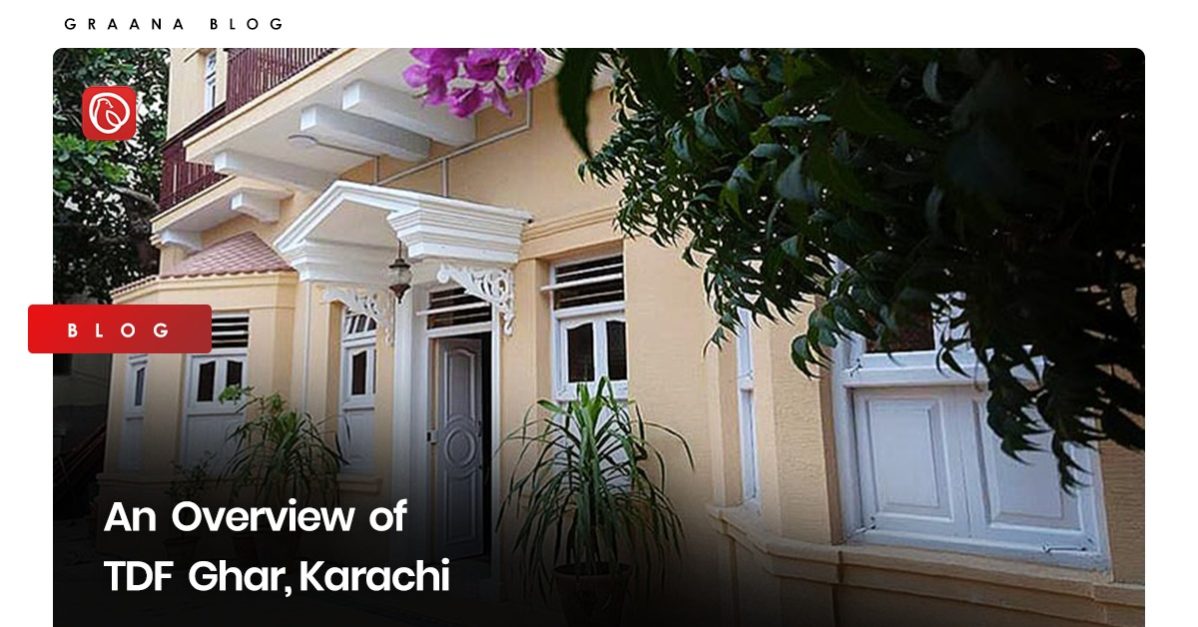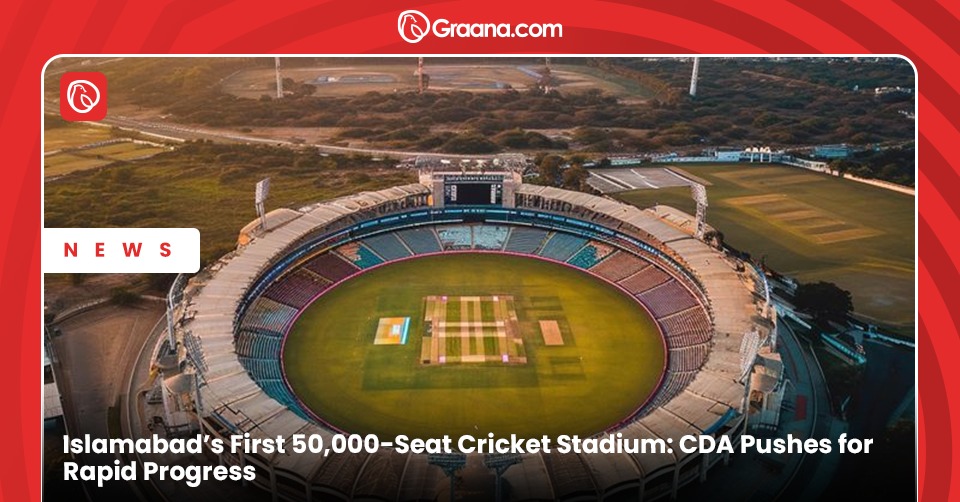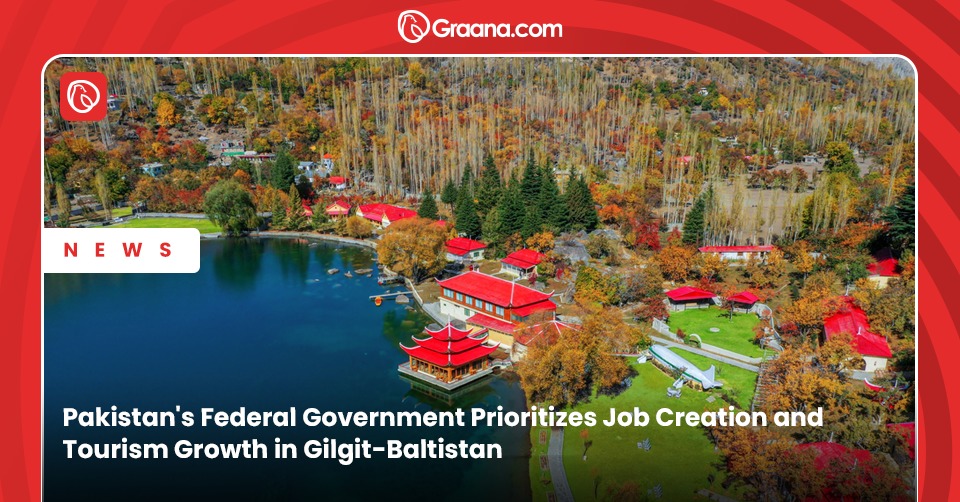TDF Ghar, located in Karachi, is an informal learning space set up in a building from the 1930s, which has been renovated to serve as a living museum. The Dawood Foundation (TDF) has maintained the house’s heritage architectural characteristics in order to preserve the living style of the past inhabitants of Karachi. It is also considered one of the most famous historical buildings in Karachi
Graana.com has prepared a comprehensive guide to TDF Ghar Karachi below, including its location, facilities, and more.
Background of TDF Ghar
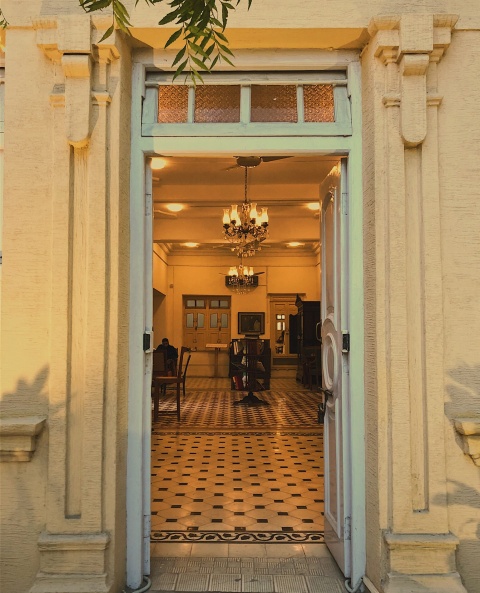
They constructed the house in the 1930s under an almond tree, and a Hindu woman named Haribai Motiram originally owned it. Later, the ancestors of the Dawood family bought the house.
The house is located in Jamshed Quarters, a neighbourhood in East Karachi, which philanthropist Jamshed Nusserwanjee Mehta envisioned to house the growing middle class of the city.
It was a multicultural area, inhabited by people of different ethnicities and faiths, including Muslims, Hindus, Christians, Parsis, and Jews. The Dawood Foundation initiated the restoration of the building in 2016, and TDF Ghar was opened to the public in August 2017.
Features of TDF Ghar
TDF Ghar is a place for the people of Karachi to come together and learn in an informal setting. The building has been converted into a public space while preserving its historical features. Its distinctive combination of a museum and a cultural centre also draws in tourists.
The space provides insight into Karachi’s history, its diverse cultural heritage, and the daily life of its people before independence. On the first floor of the TDF Ghar Karachi, there are three “Numaish Halls” and a training room that can be used for workshops, training, seminars, exhibitions, and other events in Karachi.
The Living Room (Museum)
They restored the ‘Living Room‘ of TDF Ghar to its original state with authentic fixtures, and now it is being used as a museum to showcase historical collections. The Jamshed Nusserwanji factory produced the handmade tiles used in this room.
It also contains various antique items and pieces of furniture such as vintage chess sets, a glass cupboard displaying delicate china, an original silica treadle sewing machine, a gramophone, a radio, a telephone, a typewriter, and several lamps dating back to the 1930s.
The room’s decor features a blend of different cultures including European-style sofas, Parsi furniture, Anglo-Indian vanity dressing table, and Irani chairs, all of which highlight Karachi’s inclusive and diverse ethnic heritage.
Numaish Hall
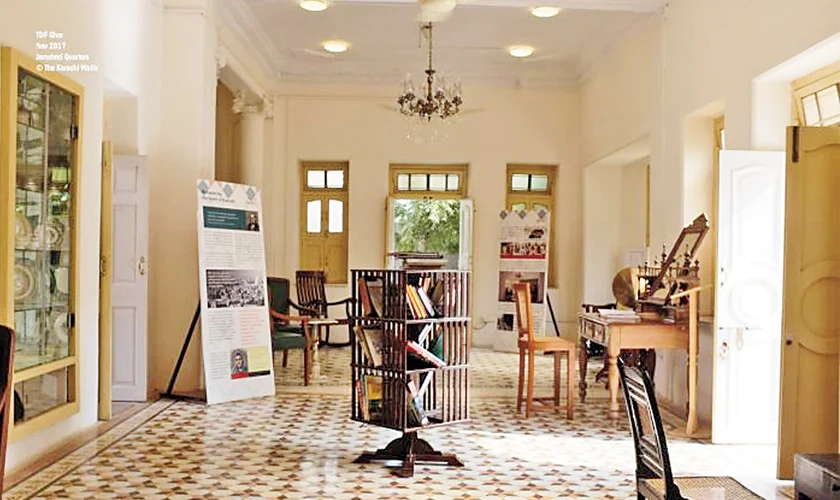
There are three numaish halls on the upper floor of TDF Ghar, serving as versatile and unoccupied spaces that can be used for a variety of purposes. These spaces are suitable for hosting diverse events such as art exhibitions, lectures, movie screenings, live performances, gatherings, and workshops.
The Numaish Halls equip modern facilities and amenities to accommodate various functions. These facilities makes them ideal for hosting events of different scales.
The ample space in these halls allows for a wide range of activities, such as hosting exhibitions, concerts, and theatrical performances. Moreover, they have state-of-the-art audiovisual equipment that enhances the experience of the audience.
The Numaish Halls can be customized and transformed to suit the needs of different events. These events include, corporate meetings, product launches, and cultural festivals, due to their versatility.
Sehan Café
Located on the veranda of TDF Ghar’s rear side is a charming café called Sehan Café, one of the best cafes in Karachi. It offers visitors an opportunity to experience the Irani café culture. It was once a popular feature of Karachi’s social scene. The interior decor features comfortable bentwood chairs, which add to its vintage and rustic ambience.
Sehan Café provides a relaxed and inviting atmosphere that is ideal for savouring a cup of coffee or tea, along with a variety of freshly baked pastries and light snacks. Its menu is diverse, offering a range of hot and cold beverages and popular local snacks.
TDF Library
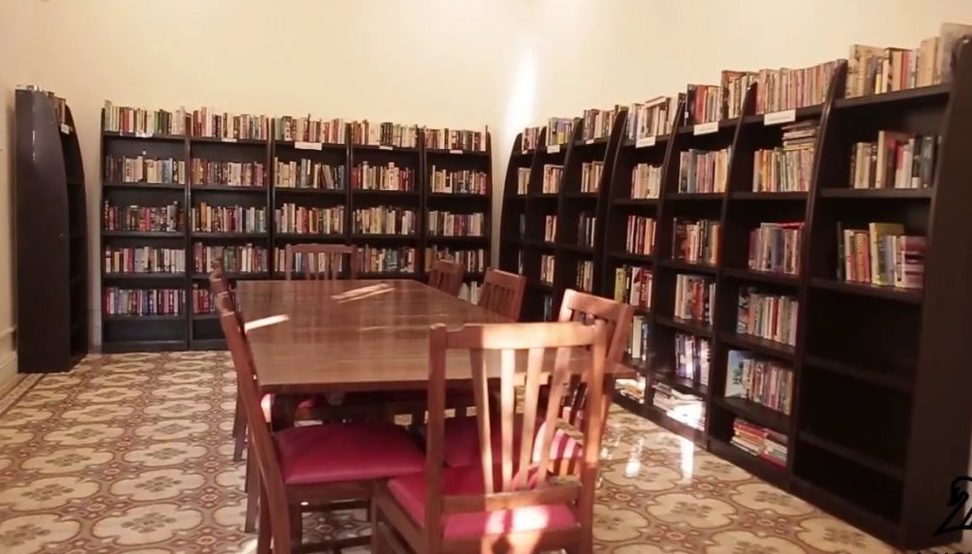
Junaid Akram’s project, The Novel Idea, collaborated with TDF Ghar to build a unique library on the first floor that operates on a book-swapping concept. This library offers visitors an opportunity to read a wide selection of books from various genres, and they can swap their own books for new ones (of the same genre).
This system allows visitors to discover new authors and books that they might not have come across otherwise. Moreover, the library provides an opportunity for visitors to meet like-minded individuals and share their love for reading and literature.
The library’s extensive collection of over 2500 books including fiction, non-fiction, history and children’s books.
Additionally, the library hosts various literary events, such as book clubs, author signings, and poetry readings. These events are open to the public and offer a platform for literary enthusiasts to engage with one another.
Exhibitions at TDF Ghar
TDF Ghar aims to promote the strength, uniqueness, and charm of each culture and community by showcasing them in its various exhibitions. These serve as a platform for visitors to learn about and appreciate the rich cultural heritage and history of Pakistan.
Groovy Years
‘Karachi of the 60s and 70s’ provides a snapshot of its cosmopolitan history. It shows the various cultures that it represented over half a century ago.
The Jinnahs
They held another notable exhibition named ‘The Jinnahs’ in 2018. It explored the personal life of Pakistan’s founder, Quaid-e-Azam. The exhibition also showcased the influence of the three most important women in his life. These women include, Fatima Ali Jinnah, Ruttie Jinnah, and Dina Wadia.
To China
‘To China, With Love’ was another fascinating exhibition held in February 2018. This exhibition showcased the unique culture and traditions of China and Pakistan’s connected history.
Henna Sey Eid
They hold a special exhibition called ‘Henna Sey Eid’ annually during Eid. This exhibition celebrates the cultural significance of henna and its roots in Islamic traditions worldwide.
Moses Somake
‘The Man Who Built Karachi – Moses Somake’ was an exhibition that celebrated the work of the pioneer architect . He was behind many of the colonial city’s stone buildings. The organisers held this exhibition in 2018 with the aim of recognizing the contribution of an Iraqi architect to Karachi’s heritage.
Karachi in the 1950s
‘Karachi in the 1950s and All That Jazz’ was an exhibition that celebrated the history of the city. The exhibition offering include music, cinemas, and eateries, during the 1950s. The exhibition’s photobooth and props were particularly popular among visitors.
Karachi Ka Keamari
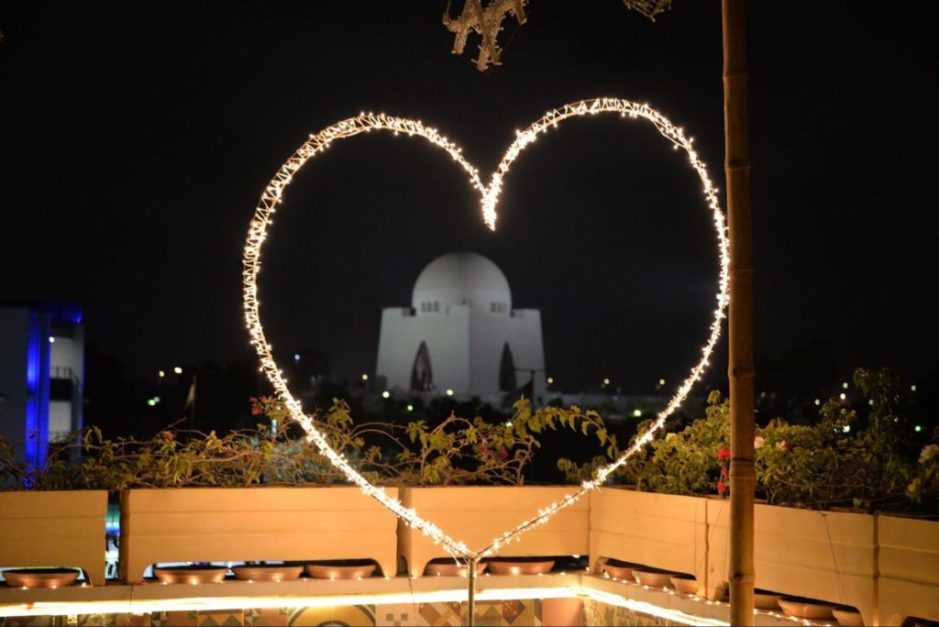
The designers created an interactive exhibition called ‘Karachi Ka Keamari’ to explore the history of Pakistan’s largest and busiest seaport. It was design to exabit through documentaries, a photo booth, and a crane exhibit.
Follow Graana blog for more related information.
FAQs
Here are some FAQs related to TDF ghar
What is TDF Ghar?
TDF Ghar is a housing project initiated by The Dawood Foundation (TDF) in Pakistan. It aims to provide affordable and quality housing options to low-income individuals and families.
Where is TDF Ghar located?
TDF Ghar is located in various cities of Pakistan, including Karachi, Hyderabad, and Sukkur. Each location offers different housing schemes and amenities.
What types of housing options are available at TDF Ghar?
TDF Ghar offers a range of housing options, including apartments, houses, and plots for residential purposes. The sizes and designs of these properties may vary based on the specific location and project.
How can I apply for a property at TDF Ghar?
To apply for a property at TDF Ghar, you can visit their official website or contact their designated offices. They typically have a specific application process that includes submitting required documents, fulfilling eligibility criteria, and completing necessary forms.
What are the eligibility criteria to apply for a property at TDF Ghar?
The eligibility criteria to apply for a property at TDF Ghar may vary depending on the specific project and location. Generally, they prioritize low-income individuals and families who meet certain income thresholds and fulfill the required documentation.
Are there any financing options available for purchasing a property at TDF Ghar?
Yes, TDF Ghar may offer financing options or partnerships with financial institutions to facilitate property purchases. These options can vary based on the project and location. It is recommended to inquire about financing options during the application process.
What amenities and facilities are provided at TDF Ghar?
TDF Ghar aims to provide basic amenities and facilities to its residents. These may include well-planned infrastructure, access to clean water and electricity, parks and green spaces, community centers, and other essential services.
Are there any additional costs or maintenance fees associated with owning a property at TDF Ghar?
Yes, owning a property at TDF Ghar may involve additional costs and maintenance fees. These can include utility bills, property taxes, and contributions towards maintenance and upkeep of common areas and facilities. The specific details of these costs can be obtained during the application process.
Can I sell or transfer my property at TDF Ghar?
Yes, in most cases, you can sell or transfer your property at TDF Ghar. However, it is important to review the terms and conditions set by TDF and adhere to any guidelines or procedures for property transfers.
Are there any income-generation or livelihood programs associated with TDF Ghar?
TDF Ghar may offer income-generation or livelihood programs to support the economic empowerment of its residents. These programs can include vocational training, skill development, and entrepreneurship initiatives aimed at enhancing the financial well-being of the community.
